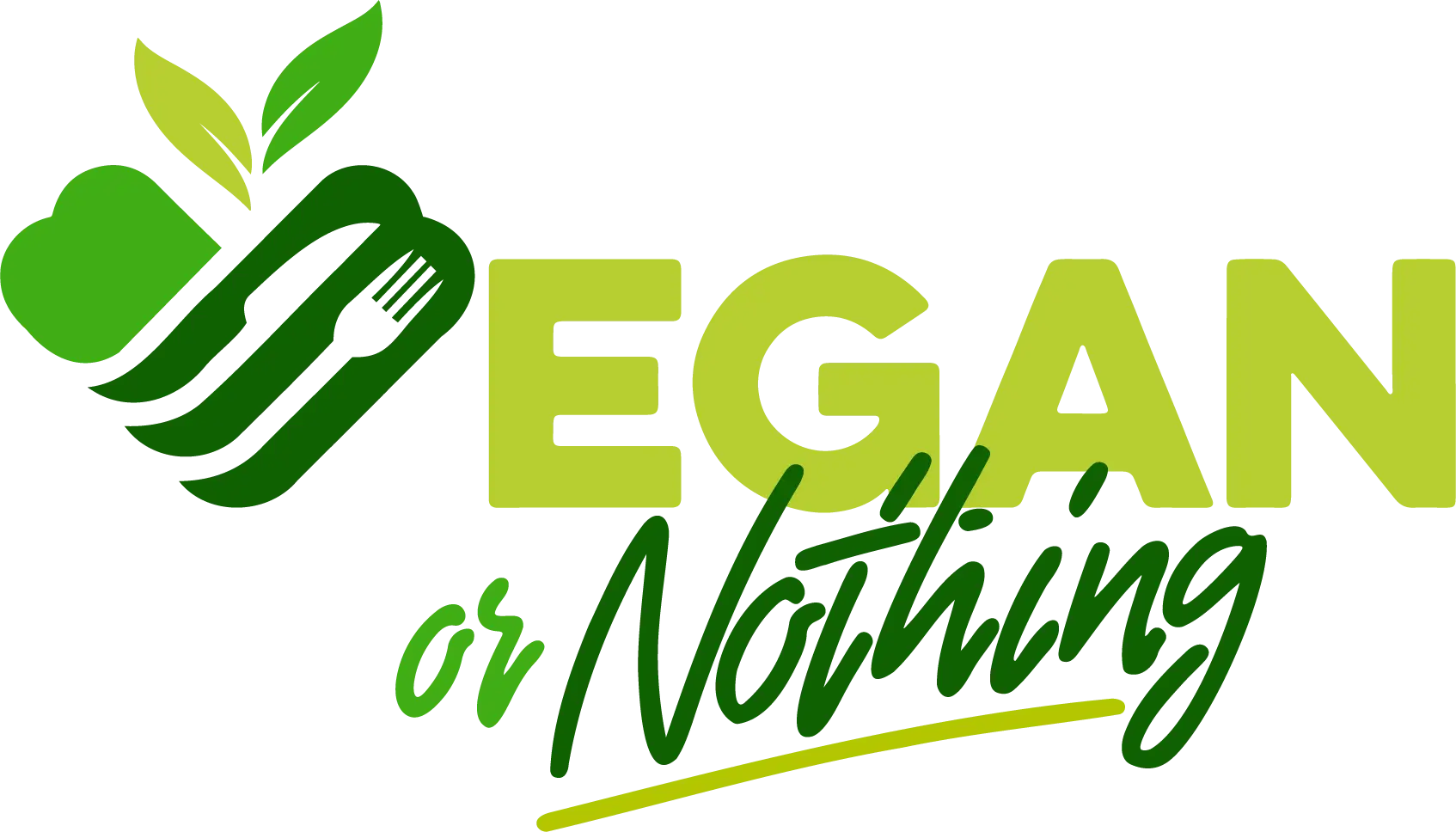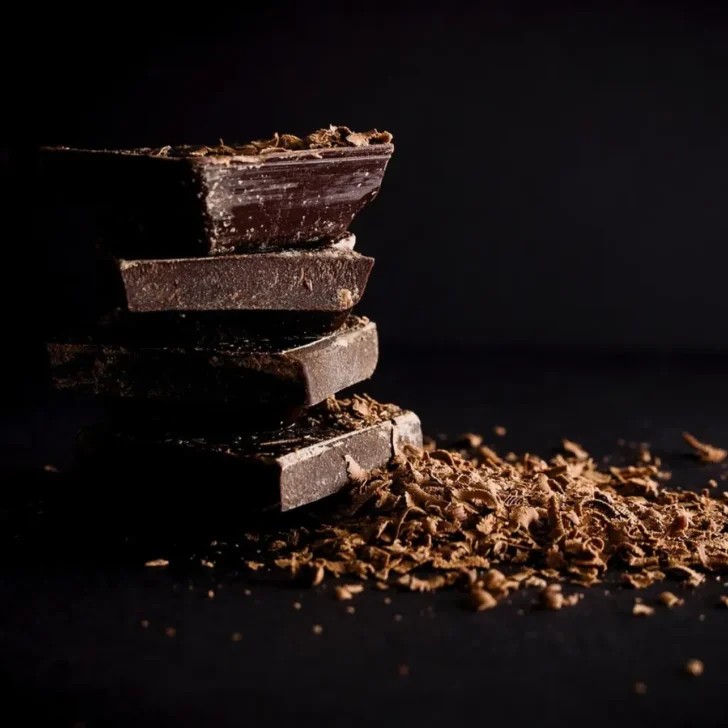Read time: 9 mins.
Table of Contents
Introduction
Embarking on a vegan lifestyle has been a rewarding adventure for me and my family. Emma and Mark have embraced it with open hearts, and watching Charlie grow up in this environment is truly fulfilling. However, the world of veganism isn’t without its challenges. We had managed to avoid chocolates for months, convinced it was incompatible with our values.
But then, something unexpected happened. Charlie’s innocent joy in savoring a piece of dark chocolate rekindled my old cravings. Could dark chocolate fit into our vegan diet? To my surprise, the answer isn’t as simple as I hoped. Not all dark chocolate is vegan, and I learned there are some things to watch out for.
Here is what I discovered.
What is Dark Chocolate?
As I set out to see if dark chocolate could fit into my vegan lifestyle, I was intrigued by its backstory. Dark chocolate is often seen as the sophisticated sibling of milk chocolate. It’s made from a mix of cocoa solids, cocoa butter, and sugar, which gives it that deep, rich flavor we all crave.

The magic starts with cocoa beans, which are fermented, roasted, and ground into a paste. This paste is then separated into cocoa solids and cocoa butter, and mixed with sugar to create the chocolate we love. Although the basic ingredients are plant-based, the real challenge is making sure that every bar sticks to vegan standards. On paper, this sounds like a perfect vegan treat. However, there’s more to the story.
Is Dark Chocolate Vegan?
Delving into it further, I found that navigating the world of dark chocolate can be a bit tricky if you’re vegan. DUH! While many dark chocolates are indeed vegan-friendly, it’s not a guarantee across the board. So, the answer is dark chocolate vegan? It depends. It is straightforward as a simple “yes” or “no.”
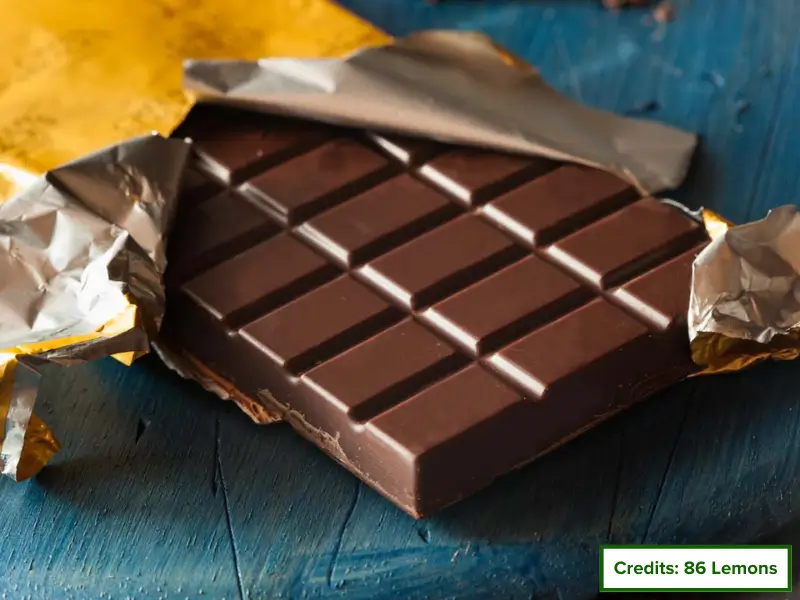
Generally speaking, dark chocolate can be vegan, but it’s essential to check the specifics. Dark chocolate’s vegan status often depends on its cacao percentage: the higher the percentage, the more likely it is to be vegan since it contains fewer additional ingredients.
For instance, dark chocolate such as Trader’s Joe with 60-65% cacao or more usually avoids dairy products, sticking to ingredients like sugar and cacao butter, which are plant-based. However, many commercial dark chocolates may be processed on equipment shared with dairy products, and some might include notes like “may contain dairy.”
Thankfully, the rise in vegan options has led to dark chocolates made with plant-based milk substitutes like almond or coconut milk, making it easier to find a vegan-friendly choice.
Also Read → Why Vegan Butter is the Best Choice for Your Heart and Planet
Why Some Dark Chocolate Isn’t Vegan
A good question, yes! While dark chocolate often seems to align with a vegan way of life, it’s not always a sure bet. Here’s why.
Dairy Derivatives
Some dark chocolate brands add dairy-derived additives to improve texture and flavor. For example, if you ask me, is Dove dark chocolate vegan? That’s truly not! It contains fat milk. The same goes for Hershey’s dark chocolate, which makes it unsuitable for vegans. This was a big reminder that not all dark chocolate is created equal.
Non-Vegan Sweeteners
I was surprised to find that some dark chocolates use non-vegan sweeteners like honey or bone-char processed sugar. Honey is not vegan, and bone-char processed sugar involves animal bone char in its processing. For example, Ghirardelli Dark Chocolate is not vegan because it contains sweetened condensed milk.
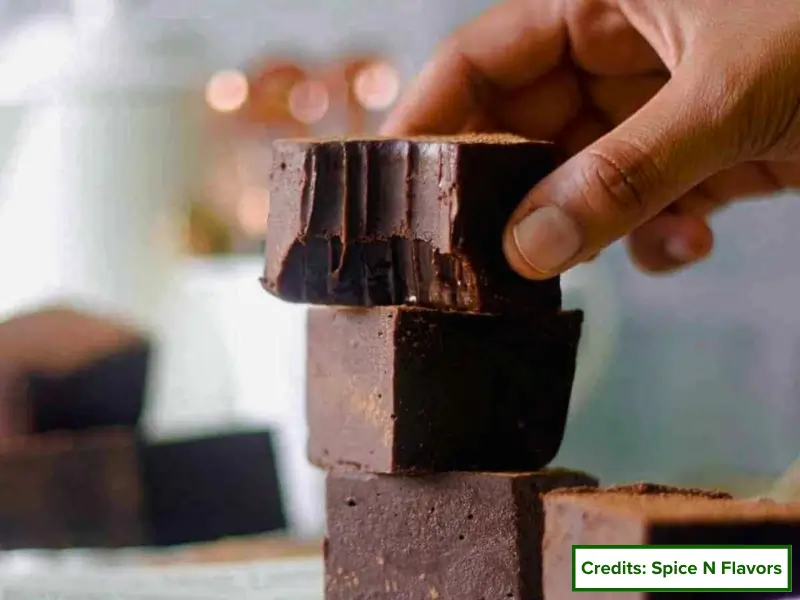
Hidden Animal Products
Even if a dark chocolate doesn’t list dairy ingredients, it might still be processed with animal-based products. For instance, animal enzymes or gelatin could be used during production, affecting its vegan status.
Flavored Additions
The allure of flavored dark chocolates like caramel or toffee led me to another revelation. These treats often contain non-vegan ingredients. Caramel, for instance, can be made with dairy or non-vegan sweeteners. I learned to scrutinize not just the base chocolate but also any added flavors to ensure they aligned with my vegan values.
Cross-Contamination Risks
Facilities that process both dairy and non-dairy products can result in cross-contamination. If dark chocolate is made in the same facility as milk chocolate, traces of dairy might end up in the final product, making it non-vegan. For dark chocolate to be truly vegan, it must be produced on equipment dedicated solely to non-dairy products. Sadly, Mark had to give up his favorite Lindt chocolates because they’re made in a place that also processes dairy.
How to Identify Vegan Dark Chocolate
So, after diving deep into the world of dark chocolate, the next challenge was figuring out how to spot a vegan-friendly bar. It turned out to be a bit of an adventure in label-reading and ingredient-sleuthing, but it was worth every bit of effort. Here’s how I went about it, and thankfully, I hit the jackpot more often than not.
Check the Cacao Content
When buying dark chocolate, for the cacao content. I learned that chocolate with a high cacao percentage around 70% or higher is usually a safer bet for vegans. The higher the cacao content, the less likely the chocolate is to contain non-vegan fillers like milk.
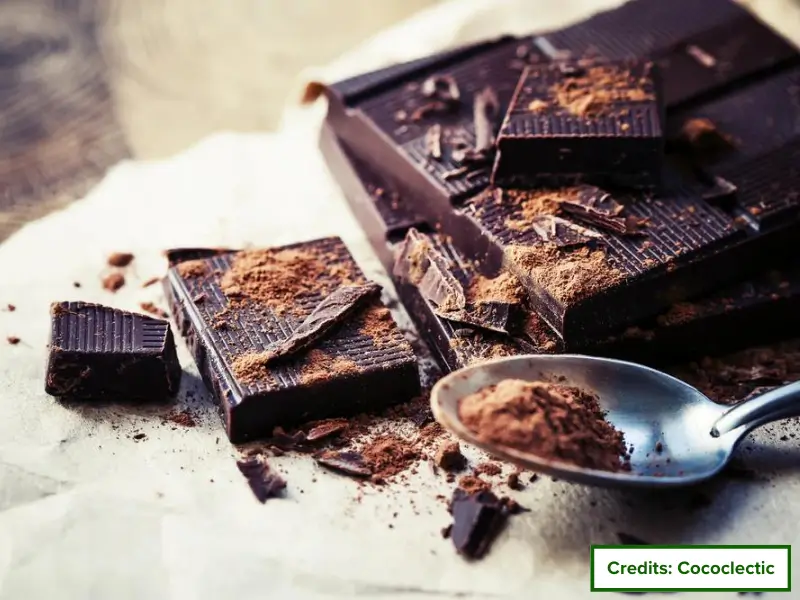
Examine the Sugar Source
As I just told you brands use sugar refined with bone char so when you go for shopping make sure to check the label for this detail. I also look for chocolates that use sea salt or other healthier sugar alternatives, which not only keep the chocolate vegan but also maintain its quality.
Look for Cross-Contamination Warnings
Some chocolates are made in facilities that also process dairy, which could mean trace amounts might end up in the product. Even if the ingredients list looks vegan double-check for any warnings about cross-contamination with dairy.
Verify Vegan Labels and Certifications
One of the easiest ways I’ve found to identify vegan dark chocolate is by looking for the “V” symbol or a clear “vegan” label on the packaging. Many brands proudly display this, making it simple to spot a vegan-friendly option.
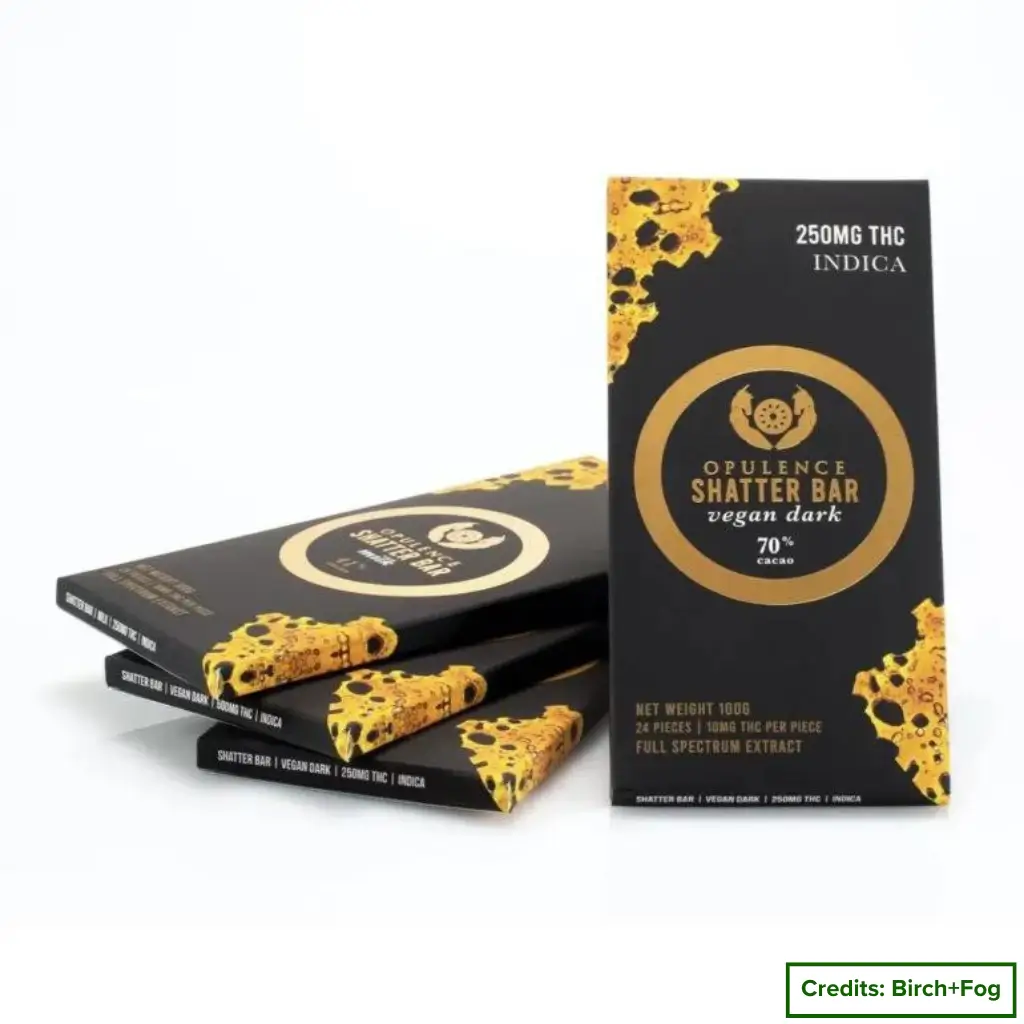
Research the Brand’s Ethics
Finally research the ethics of the brands you buy from. Some companies go above and beyond by not only making vegan chocolate but also committing to fair-trade practices, organic farming, and sustainability.
Scrutinize the Ingredient List
One of the things you can do when picking up a chocolate bar is to carefully read the ingredient list. Look for any mention of milk, milk fat, or other dairy derivatives like whey or casein. If the list includes only cocoa solids, cocoa butter, sugar, and possibly a natural flavor like vanilla, feel confident moving forward. But if you spot any unfamiliar terms, take a moment to research them, just to be sure.
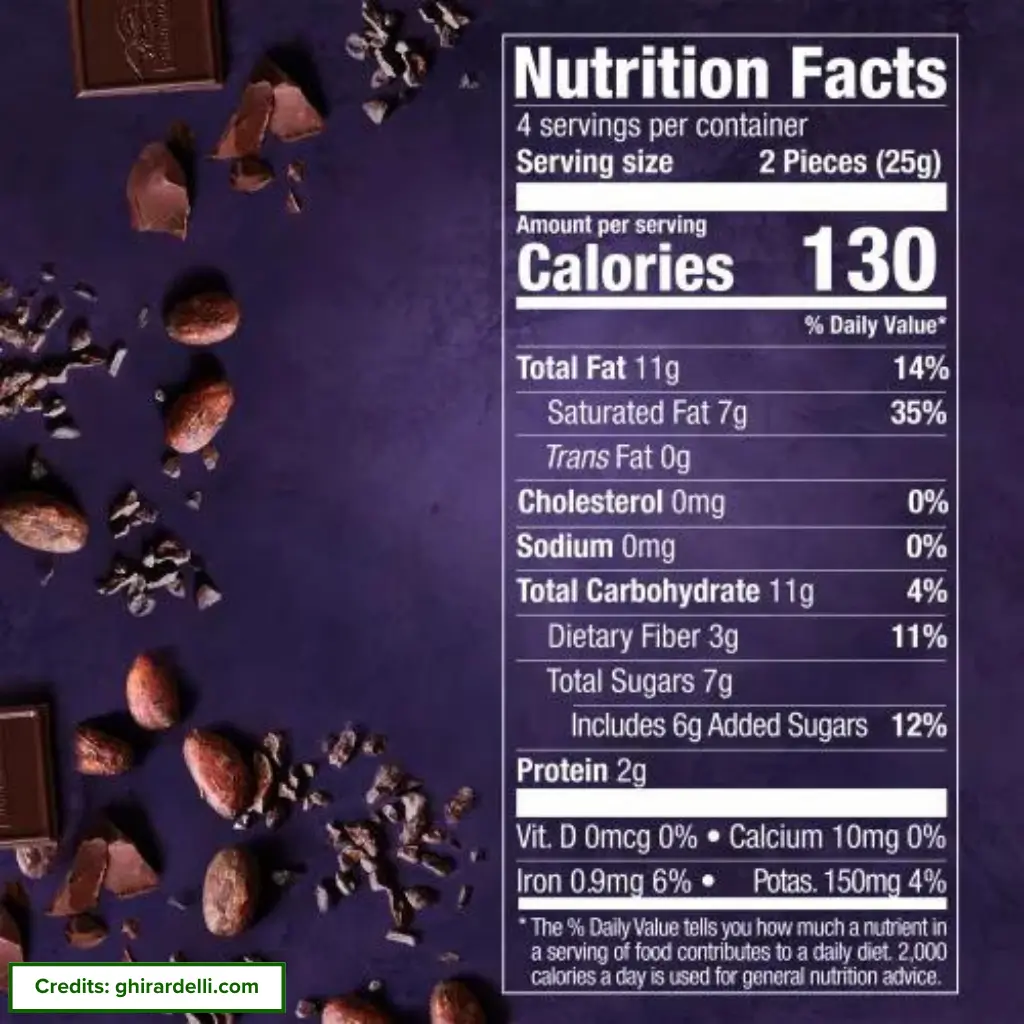
Popular Vegan Dark Chocolate Brands
My quest led me to discover some fantastic vegan dark chocolate brands that I’m excited to share:
Mast Dark Chocolate
Mast’s artisanal bars offer a rich cocoa flavor with hints of citrus. Its smooth texture and high nutritional content make it a special treat. I remember surprising my partner with a Mast bar on our anniversary, and it became our new favorite treat to share during cozy movie nights.
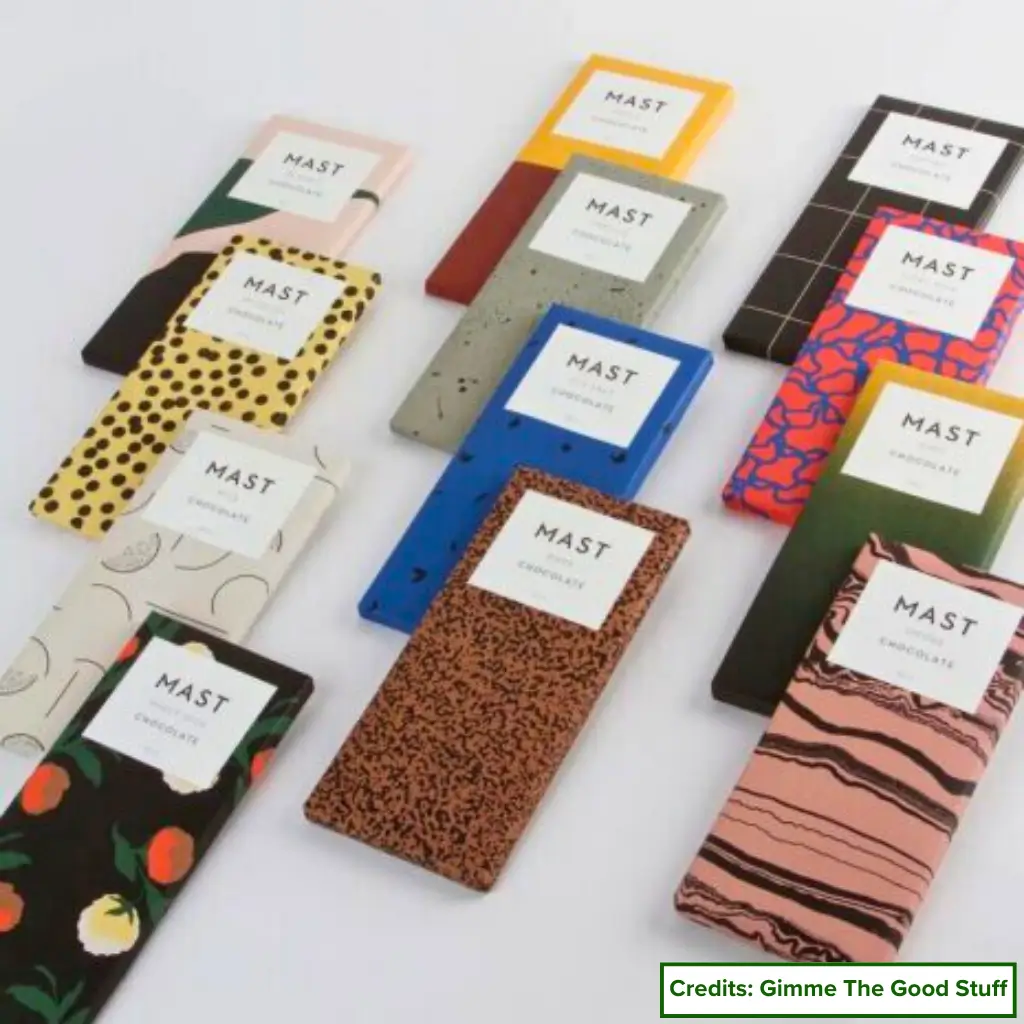
Ritter Sport
Ritter Sport has been crafting dairy-free chocolates long before labeling them as vegan. I discovered these at a German-themed market and was delighted to find a brand that brought back fond memories of my travels, now with a vegan twist.
Hershey’s Oat Classic Dark
If you love Hershey’s any how go for their Hershey’s new Oat Classic Dark uses oat milk instead of dairy, catering to vegan and health-conscious eaters.
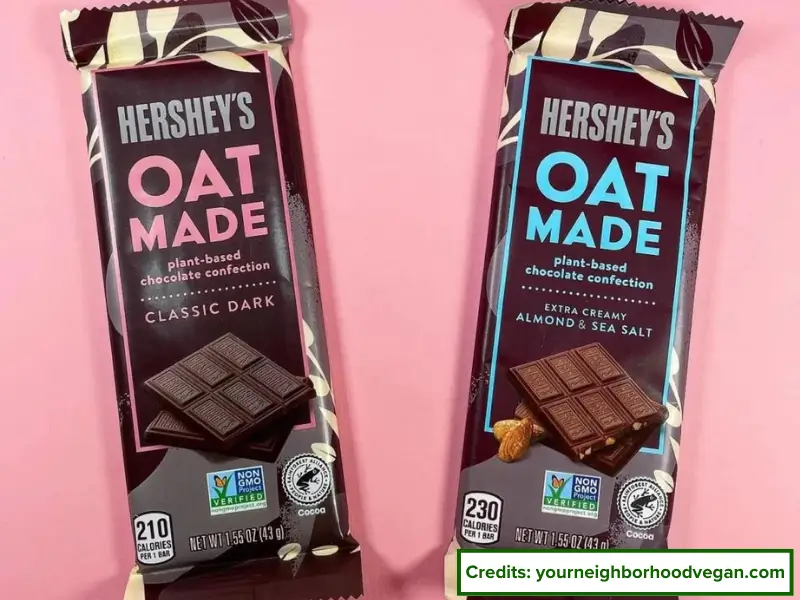
Montezuma’s
Montezuma’s Absolute Black bars are entirely vegan and come in eco-friendly packaging. Mark brought their Dark Chocolate Orange and Geranium bar and it was wow!
TCHO
TCHO’s vegan chocolates are Fair Trade and USDA Organic certified. Their Holy Fudge bar was a delightful find during my search for ethical chocolates, offering a rich taste and reassuringly sustainable practices.
Enjoy Life Foods
Enjoy Life specializes in allergen-free products, making their dark chocolate a reliable choice for those avoiding dairy and other common allergens.
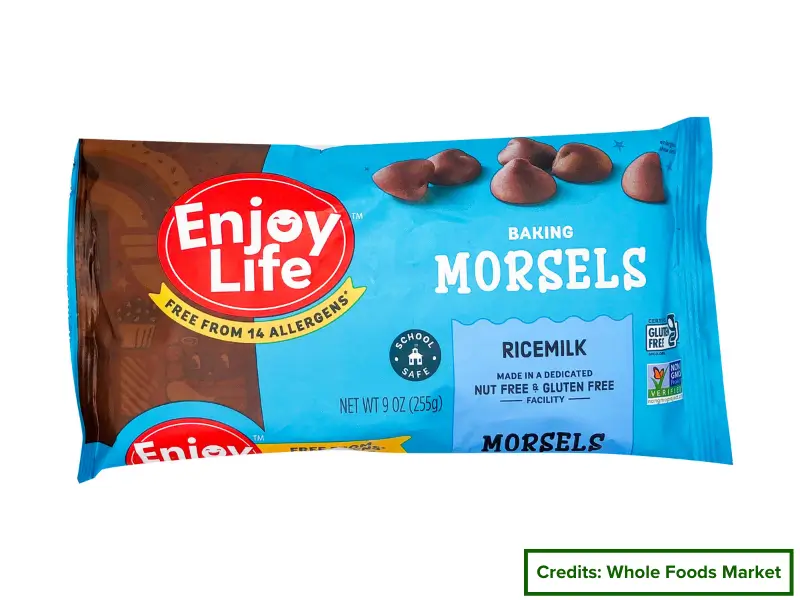
Other noteworthy options are:
- Seed & Bean Organic Dark Chocolate
- Doisy & Dam
- Cocoa Libre
- Hu’s
- Divine Dark Chocolate
- Vego Whole Hazelnut Chocolate
- Green & Black’s Organics
- Simple Truth Organic
Final Reflection
As we conclude this chocolate journey, it’s clear that dark chocolate’s vegan status isn’t always black and white. Each bar tells a story of ethical choices and ingredient transparency. With a bit of knowledge, you can enjoy your chocolate guilt-free. So, with this guide next time you grab a dark chocolate bar, you’ll know exactly which ones to choose and savor!
FAQs
Is Godiva dark chocolate vegan?
No, most Godiva dark chocolate varieties are not vegan as they typically contain milk or other animal-derived ingredients.
Is Brookside dark chocolate vegan?
No, Brookside dark chocolate is not considered vegan because it usually contains milk ingredients.
Is vegan dark chocolate healthy?
Yes, vegan dark chocolate is beneficial for health due to its high antioxidant content. When included in a balanced diet, it can enhance heart health, boost brain function, reduce stress, and support immune system balance.
Is there vegan milk chocolate?
Yes, vegan milk chocolate is available, crafted using plant-based alternatives like nut milk or oat milk. These options provide a creamy, rich texture akin to traditional milk chocolate, without the use of dairy.
